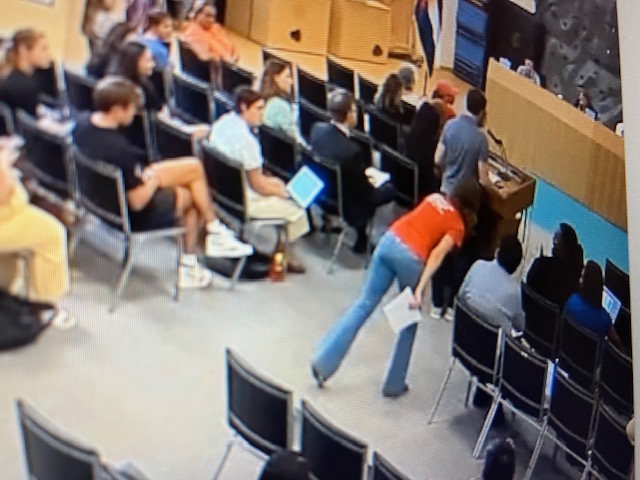A proposed Denver Public Schools policy limiting freedoms for innovation schools—district-run schools with some charter-school-like autonomy—is causing concern among school leaders who say the school board sprung the idea on them without their input.
Board member Scott Baldermann last month introduced the Standard Teacher Rights and Protections policy, which would afford all DPS teachers the same protections provided by the Denver Classroom Teachers Association.
Pushing that proposal through could gut waivers the district’s 52 innovation schools won in staff votes from the teachers’ union’s collective bargaining agreement. For example, drafting a school calendar, teacher salary and work schedule that’s consistent across all district schools would take away the flexibility that made innovation schools what they were intended to be.
Board members got an earful on Wednesday and Thursday nights during a town hall meeting and a work session from innovation school leaders, who’ve relied in part on waivers from the teachers’ union requirements to provide a unique educational experience for their students.
On Wednesday, board members Tay Anderson, Scott Esserman and Michelle Quattlebaum hosted a virtual town hall attended by more than 100 people.
“I believe that teachers should be able to have those protections. What I don’t believe in doing is rushing through a fast process without community engagement,” Anderson said during that meeting.
“And it’s one thing to make sure teachers have their rights, and it’s another to just bulldoze a process without true, comprehensive community engagement.”
Anderson and Esserman both emphasized that it was one board member (Baldermann) who brought the proposal to the table. They stressed that the board will not vote on it before completing a thorough community engagement process.
“When we introduce policies without talking to people who are potentially impacted, we are continuing to act upon people instead of with people,” Esserman said. “And that’s and that’s not something I’m interested in doing as a board member.”
At the town hall’s end, the board members discussed their takeaways from what those in attendance had told them. One major concern they heard is about the proposed school calendar. Innovation school teachers who waive their right to teach for only a certain number of hours every day do so to provide the flexible instruction and attention their students need.
Innovation school leaders said during Thursday’s work session that promises of community engagement would feel more genuine coming from the DPS board if it had been launched before the proposed new policy was introduced.
Sheldon Reynolds, principal of the Center for Talent and Development, said no board member has visited his school over the past two years even though the school saw significant improvement under his watch.
“Not one person on that board has stepped foot into my school to see the impact on the kids, to see the impact on our teachers,” Reynolds said. “This work has been here. We have been here. Why is now the time that we are asked how’s it going … and you create a policy?”
Kimberly Grayson, principal at Dr. Martin Luther King, Jr. Early College, also credited innovation laws with the success of her students, She referenced a speech made by President of the Confederacy Jefferson Davis, who said the American education system is not designed by or for Black people as she emphasized the potential negative impact on minority students and teachers of gutting innovation schools.
“Altering innovation without speaking to those who it would directly impact would mean that we exist in a system not designed for our students,” Grayson said. “It means you are forcing us to exist in a system; in a system that perpetuates the very inequity that Senator Davis was so proud of,” she said.




